On Writing: Ten Things I Learned Writing 100 Poems in 100 Days
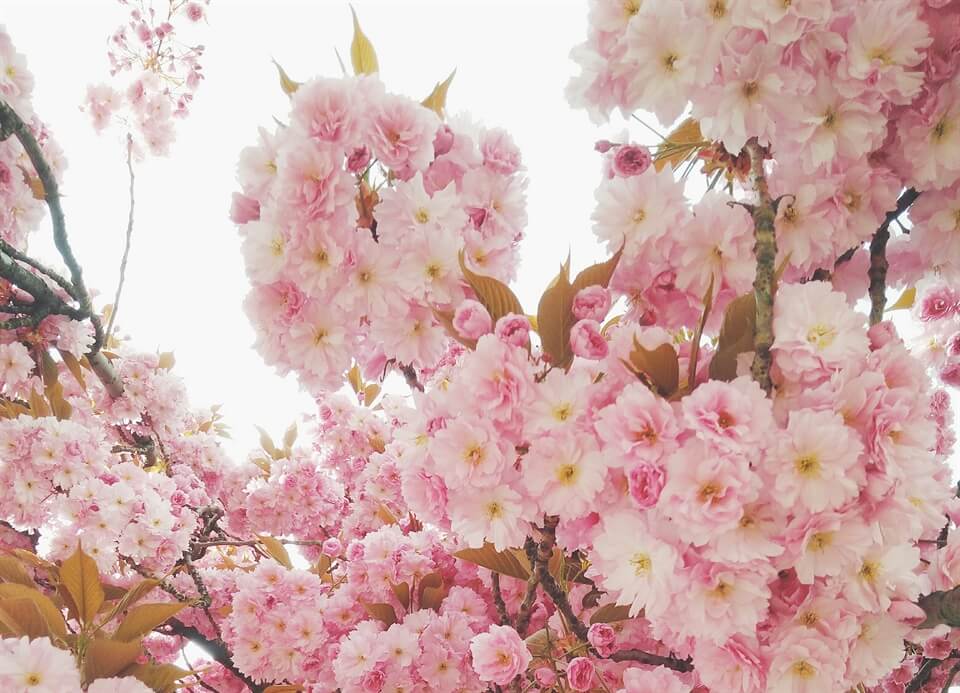
Earlier this month I finished a challenge I began in April. It was writing one hundred poems in one hundred days, and I took part in it because last year I saw a number of people I follow on Instagram doing similar challenges as part of #the100dayproject, a creative challenge founded and run by artist Elle Luna. (You can read lots more about the challenge here.)
Most people do more art-based challenges - paintings, drawings, illustrations, sculptures, other more substantive art forms - but I was only ever going to do something to do with writing, and because poetry is new to me, exciting and interesting, and yes, much quicker and arguably easier to write, I went with writing 100 poems.
I completed the challenge without major hiccup. I posted my poems on Instagram using the hashtag #100poemsby Frankie, and on all but maybe three or four days, I did it every day. I fell behind a few times because I simply forgot, and then there was one day when I just couldn't come up with something I wanted to share. At times I felt it was way too easy. On other days, I felt stretched but not overwhelmed. It was a very gentle and meandering rollercoaster. I was always aware of needing to write a poem in the back of my mind, but it didn't take up too much energy or brain space, which was essential for me as I'm still very mindful of demands on my time following my experience of depression and anxiety.
What I loved most about this challenge was the joy it gave me. It was so similar to the first time I did NaNoWriMo and I wrote over 50,000 words in a month of the manuscript that would become my first book, Shy Feet: Short Stories Inspired by Travel. Back then, I was blown away by how much fun doing NaNo was. I would sit at my keyboard and smile to myself, laugh out loud and even feel moved to tears by the worlds and the people and the lives I was creating. It was the most thrilling experience. And this challenge brought back similar feelings. While I wasn't exactly taking characters on journeys or revealing their deepest darkest secrets, I was still creating things that didn't exist before I sat down and dedicated a little brain power and love to them. Simply put, this challenge reminded me how sweetly satisfying, how enjoyable and yes, how FUN creating can be.
I suppose that was the best lesson, or rather reminder, for me: making stuff is awesome. But that's not all I learned. These are ten of the other things I learned after completing my 100 poems in 100 days challenge....
1. Give yourself permission to fail.
I began this challenge a few days after I'd just moved house, and a week into a two-week visit by the flu that left me thoroughly unwell, unhappy and exhausted. I was actively telling myself not to #100poemsbyFrankie. I had every excuse not to do it. When it came to the start date, I really didn't want to do it. 100 days felt like an eternity. 100 poems felt like an impossibility.
But I did it anyway.
I did it anyway because I stopped myself overthinking the reasons I shouldn't do it. I focused - albeit briefly because you know, unpacking boxes and taking pain relief was more of a priority - on reasons I should do it. I remembered last year feeling so annoyed I hadn't taken part in the challenge and I knew I'd be annoyed if I didn't do it this year.
I gave myself permission to start, but more importantly than that, I gave myself permission to fail. I told myself it didn't matter if I didn't make it to 100 days. All I needed to do was start... and be open to see what happened next.
In short, I just went for it. I didn't worry about what would happen if I didn't make it to 100 poems in 100 days, but I knew I wasn't going to get anything close to 100 poems if I didn't give myself permission to simply start and to risk failure.
2. You will NEVER run out of ideas.
Again because of the house move and flu, I can't remember if I was worried about coming up with 100 different poems in 100 days, but I think I possibly should have been, because I've only ever written a handful of poems before. However, I was somewhat prepared. Because I knew I'd be doing the challenge before it started, I'd already jotted down a few ideas and lines for potential poems and this was really helpful to get the all-important momentum going.
It then evolved that the little buzz I got from writing, publishing and sharing one poem, often fuelled me into wanting to write another. The more I wrote, the more I felt my eyes, ears and all my senses open to more inspiration. While I didn't always like the ideas or the words that came to me, they still came. I didn't have to worry about not having enough things to write about. The more I wrote, the more I had to write. I bloody love that.
3. It's good to make your own rules.
The only rule for this challenge was the one you already know: 100 poems in 100 days. There were no other rules.
With this in mind, I have to admit that I didn't a brand new poem every day. Some days I wrote three or four poems and I often picked poems from this batch on the days when I couldn't finish a new poem because of time or just because it was proving too difficult. I also didn't start and finish each poem on the same day. But I did write 100 poems in 100 days, just not in a rigid way that dictated it was exactly one poem every single day. This "freedom" helped me both creatively and practically as I knew already that my creativity definitely experiences ebb and flow, and practically-speaking some days were just too busy for me to write a new poem from scratch.
It was also empowering to again give myself permission to attack this challenge in the way that best suited me. I was still being creative; I was still creating new work; I still ended up with 100 poems in 100 days, but I got there in a way that benefitted me in many other ways; less pressure, more freedom.
I also introduced some "structure" to some of my poems, by doing a series of ten poems within the challenge, all of which had only six words each. That was great for days when I didn't have an idea for a poem, because I could at least think about what I could do with six words. I suppose it's like giving yourself a lump of clay to mould rather than having to make the clay yourself first.
4. Creativity breeds creativity.
In a different way to the point above about running out of ideas, not only did creativity breed creativity in terms of being on a roll writing poems once I'd started the challenge, but after a week or so I found my interest in other creative exploits piqued. I picked up my camera again for the first time in years and set off taking photos just for the fun of it. I also opened up some dusty old manuscripts for books that have been dormant for too long. I have experienced this before when writing my books or working on another creative project for a client, but I think I'd forgotten it because I am so much more limited on time these days as a mother. But this project definitely also taught me a connected lesson...
5. You don't need hours and hours to be creative.
Some of the poems I wrote took less than five minutes to write, edit, and publish with a photo. True story. While there are several good arguments to say I should have taken longer than this, this experience in itself taught me that I don't need to think of creating as something that demands hours and hours of my time. You can create something, or start to create something in just a few minutes. Furthemore, being creative isn't, nor should it ever be, a time suck. It's something I should actively give time to, even if all I can give is ten minutes.
Of course, other poems took a lot longer, but honestly speaking, I think I enjoyed the short and sweet poems just as much - or maybe even more - than those that I took longer over. There was something so liberating, thrilling and flipping cool about having a new piece of work less than ten minutes after the original idea popped into my head, and I was still just as proud of those poems as I was the ones that took longer to complete. (I'll come to why below...).
Here are some of my favourite poems that came to me nice and quickly... Style, My Boy, and Wrinkles.
6. Worrying about how your work is received serves no purpose.
Let me be clear, worrying in general serves no purpose, but that doesn't seem to stop us doing it, does it? Before I began the challenge I warned my followers on Instagram what was coming up, and I received the usual number of likes, and a few comments of encouragement and excitement. The first few weeks saw lots of likes for the photos I shared, but of course I can't possibly say whether it was the photos or the poems being "admired". A month later, I began to lose followers and my engagement dwindled. It was at this point that I began to worry about what continuing with the challenge would do for my "following". Being around 1400 people, it's a small following, but one I'm weirdly proud of. I didn't want to "put people off" by continuing to post weird poems. I was also struggling to always take a "good" photo to accompany a poem, and I spent far too long wondering if it was my poems or my photos that was turning people off...
At some point I just decided to focus on the poetry. If I managed 100 poems in 100 days I would achieve more than 2,000 new followers on Instagram. 100 poems is a body of work. 100 poems is art. 100 poems is something to be truly proud of.
As it happened, by the end of the challenge, I was down 100 Instagram followers, and getting comparatively low numbers of likes.
And you know what? Life didn't fall apart.
Actually, it got pretty good when I received more than a few comments and messages congratulating me on my challenge or saying how much they'd enjoyed it. And best of all, one of my favourite people on Instagram Nina, was so moved by one of my afore-mentioned six word poems she created a beautiful watercolour illustration for it. That is worth more to me than 100,000 followers on Instagram.
7. Good art can come easily...
After a clunky few days getting going, I was amazed how quickly and easily the poems started coming to me. Often in batches of three, four, five or more. I would just type them out on my phone. Many would need editing or changing considerably before I published them, but the bare bones of them just flower out of me and they were strong, sturdy skeletons. In fact, some of my favourite poems came in flashes so quick and so mysterious that I almost began to believe that there was a mythical muse watching over me, delivering these words to me.
It was a wonderful, almost spiritual experience, but after a little research and with a big dollop of hindsight I can see that this was simply my brain waking up to new ways of being used and the neurons that I was engaging for the first time were crazy active and excited and happy.
These were some of my favourite poems to write, and to read back later... The softest skin I have ever known, Us, What I whisper to the trees.
8. And bad art can come hard.
Some of the poems I wrote and shared were bad. Terrible. I'm really embarrassed by a few of them. I read them now and I know I could have done better, and it was fairly indiscriminate which ones were quick and easy in "coming to me" and which ones took days or even weeks to be finished. But this challenge encouraged me to publish quicker and more frequently than I would have liked, and this "urgency" definitely helped me become less precious about my work. I also learned that the bad poems have to exist....
I saw my mum not long after the challenge had ended and as she applauded me on the project (which she has to do of course because she is my mother!) she mentioned that I probably wouldn't have written poems like I did before I'd spent four years writing fiction. She told me that it was those years that had helped me get to where I'm at with poetry, and that if I'd done such a challenge without that experience the results would have been very different. This really struck a chord with me because I believe it's true.
So this challenge (and my mum!) taught me that all us creative folk need to remember that the work we do today isn't exclusive from all the work we've done before. Don't think that because it comes easy one day it has to come easy the next. In fact, it's wrong to ever believe it comes easy AT ALL. But it is important to remember that the stuff that is bad, and the days that are hard, all contribute to the good work and the easy days. They are all connected, they are all part of your creative process.
Oh this is embarrassing but here are some of the poems I think could use a little more work... Covers, Shades of love, Magic
9. Don't ever let art intimidate you.
While poetry is an art form I enjoy reading, it's not one I've gone "deep" into. I only bought my first book of poetry last year and I remember really resisting studying the form when I was still at school. I found it all a bit precious, like the short lines of a poem carried too much weight, too much thought, too much pondering. I am much more comfortable stretching out all that meaning and poignancy over the many pages of a short story of novel. And if you've finely tuned your bullshit detector, you may also be getting a reading that says "Frankie also didn't think she was good enough" and you're 100% correct. I did not think I was "good" enough to write poetry, whatever "good" in this context means. Maybe I wasn't. Maybe what my mother said is correct, that the 100 poems I wrote recently were decent enough because of the years of general creative writing experience I have, but I prefer to think that I let poetry intimidate me so I could talk myself out of giving something a go. How many other fun and exciting things in my life have I applied this same "rule" to? Art is truly what we make it, be it friend or foe, a passion, a purpose or a way to pass time. Art is ours for the taking, the doing, the enjoying and nobody - including yourself - should ever tell you otherwise.
10. Take it poem by poem....
Or chapter by chapter, or scene by scene or even word by word on those days when sentence by sentence feels too much. I've already learned this lesson a million times, but my busy life, my busy brain and my too-far-reaching ambition makes me forget just as many times.
Thinking about writing 100 poems when you've only ever written two or three before in your life was daunting, and this is good because the challenge itself should always be a little daunting, but the actual execution of the challenge shouldn't be daunting. It should be doable. 100 short stories in 100 days was not doable for me... Maybe another year, but not this year. 100 poems of any possible length, on any possible subject, in any possible format... Yep, I could do that.
From now on, when I approach my creative goals, I'm going to break them down into the smallest, easiest steps... Poem by poem, word by word, breath by breath.
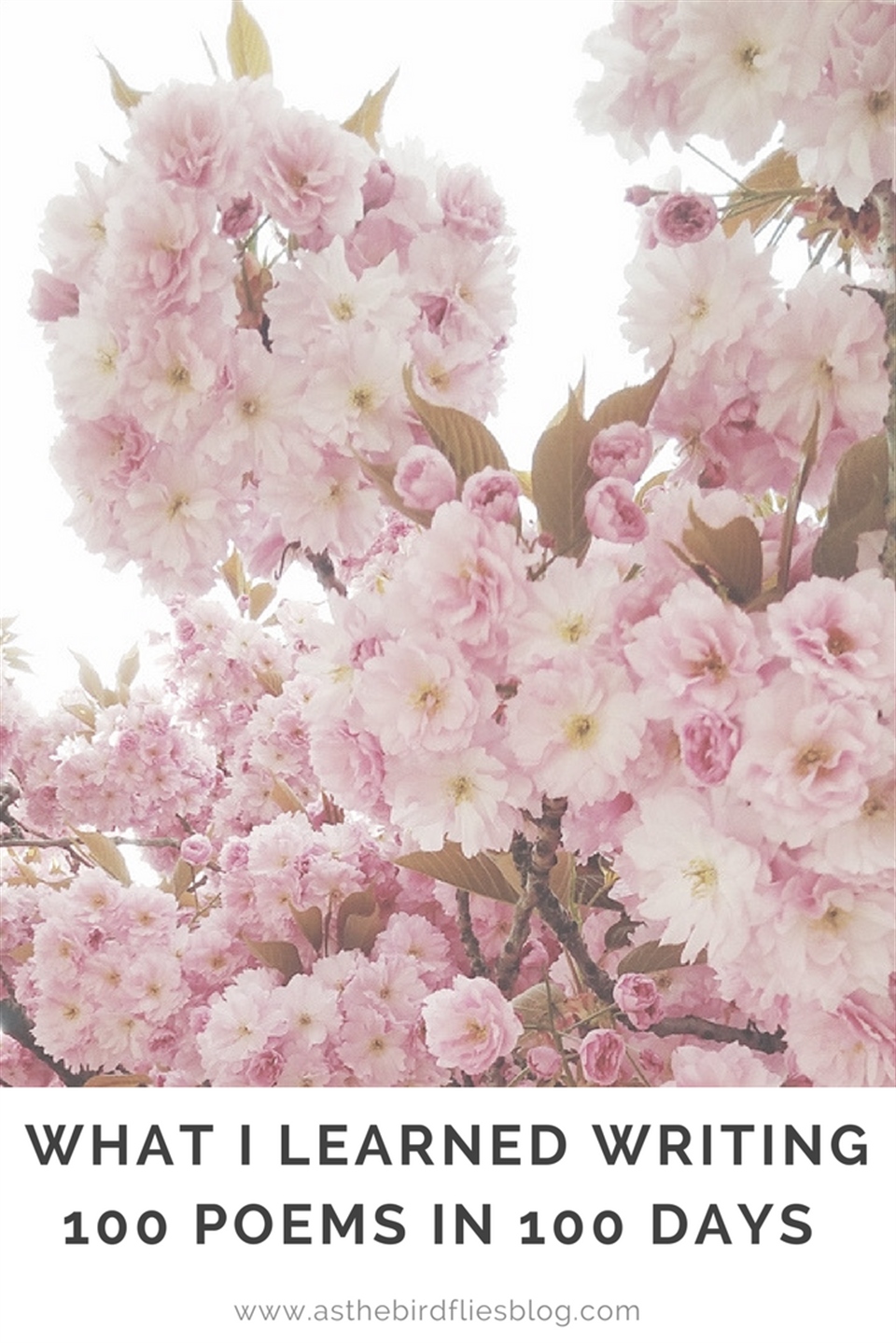
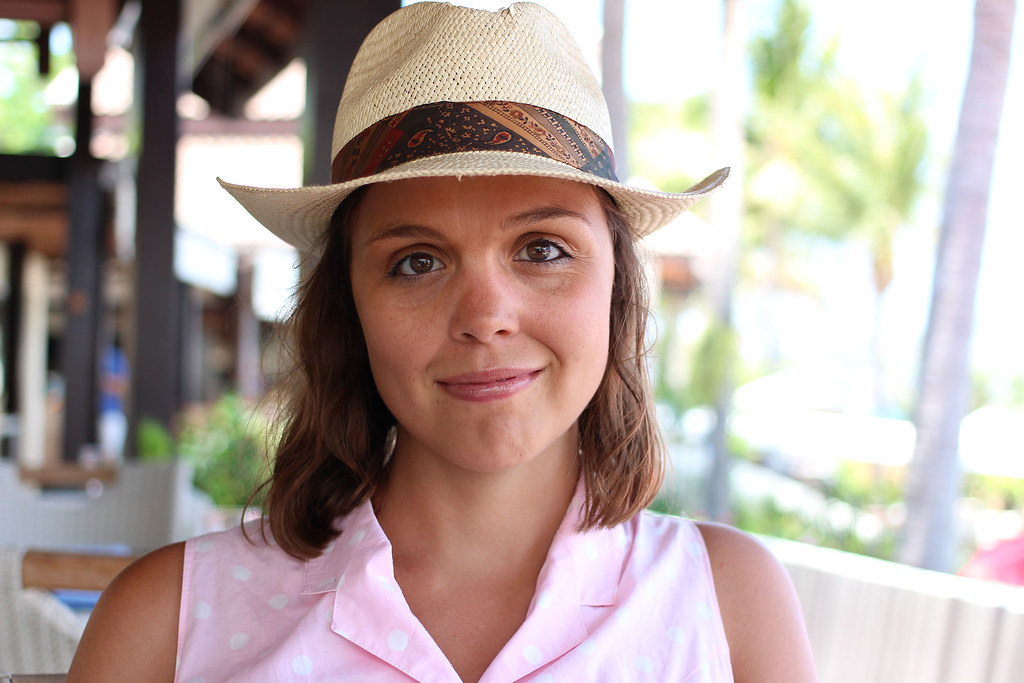
Frances M. Thompson
Londoner turned wanderer, Frankie is an author, freelance writer and blogger. Currently based in Amsterdam, Frankie was nomadic for two years before starting a family with her Australian partner. Frankie is the author of three short story collections, and is a freelance writer for travel and creative brands. In 2017, she launched WriteNOW Cards, affirmation cards for writers that help build a productive and positive writing practice. When not writing contemporary fiction, Frankie shops for vintage clothes, dances to 70s disco music and chases her two young sons around Amsterdam.
Find Frankie on Facebook, Twitter, Instagram, Pinterest, and Google+.
Find Frankie on Facebook, Twitter, Instagram, Pinterest, and Google+.
 On Writing: My Writing & Publishing Plans for 2023
On Writing: My Writing & Publishing Plans for 2023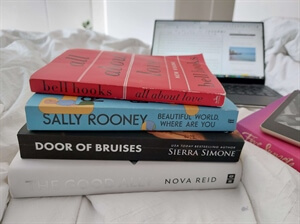 Book Reviews: Mid-Year Book Report 2022
Book Reviews: Mid-Year Book Report 2022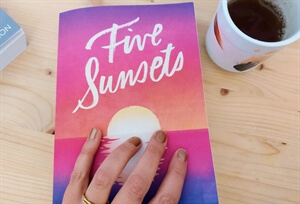 My Thoughts: The Life-Enhancing Joy of Romance Novels
My Thoughts: The Life-Enhancing Joy of Romance Novels_x300.jpg?v=1) On Writing: The Year I Decided to Write for My Life
On Writing: The Year I Decided to Write for My Life My Thoughts: 21 Things That Helped Me in 2021
My Thoughts: 21 Things That Helped Me in 2021 About the Blog & Frankie
About the Blog & Frankie Welcome to My Amsterdam Travel Blog!
Welcome to My Amsterdam Travel Blog! Welcome to My Luxury Family Travel Blog!
Welcome to My Luxury Family Travel Blog! Welcome to My Writing Blog!
Welcome to My Writing Blog! Lover Mother Other: Poems - Out Now!
Lover Mother Other: Poems - Out Now! I Write Stories That Move You
I Write Stories That Move You Order WriteNOW Cards - Affirmation Cards for Writers
Order WriteNOW Cards - Affirmation Cards for Writers Work With Me
Work With Me